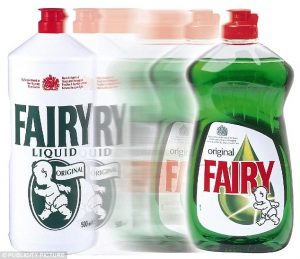Welcome to the first ever Mingle blog post
We’ll be aiming to write these regularly, covering everything from what Mingle are up to, what we’ve seen that’s interesting in the worlds of customer connection and research, to our top tips on best practice.
Hopefully, they’ll all be worth a read and please do comment and or throw questions at us. We do love a good discussion.
The fact you’re reading this hopefully means you have some idea of what we do. But if you have landed here by chance please feel free to have a flick around our site for more detail on what it is we do. If you thought/ hoped we were a dating site we are sorry to disappoint you! In short, we help your business and its employees get out of their corporate bubble and connecting directly with your customers. To better understand them, better empathise with them and, therefore, make better, more profitable, decisions about what you offer them.
We thought we’d use this first post to give you three reasons why we set up Mingle. Let’s face it, we must think there’s a need for the customer connection services we provide otherwise we’d be wasting our time. What are the key needs we think we’re tapping into? Dare I say the ‘insights’ we have about our potential customers!?
1. Customer connection builds the best kind of empathy
Empathy is all about trying to put yourself in someone else’s shoes. Traditional research – focus groups, quant studies etc – typically does this through what’s called affective empathy. We employ research agencies to get out there and do the consumer or patient interaction for us and then rely on their skills and analysis to bring the results or ‘insight’ back into the business and inspire us to do things that tap into those opportunities. This is by no means a bad thing, a lot of excellent agencies do this very well and their professional market research skills take insight to a level beyond what mere mortals can achieve. There is a big challenge though – how does this insight really permeate the organisation? All too often it risks only impacting a small number of decision makers internally and once debriefs are delivered, valuable knowledge can remain locked in that work and sat on a shelf.
That’s where a different kind of empathy is also important. It’s called cognitive empathy. It’s the kind of empathy we get from experiencing things first-hand ourselves. Cue those quotes that pop up in many a marketing text (or as cheesy posters in a office that no one ever pays attention to):

The fact is, when we experience stuff first hand we generally get more from it, and interestingly, the effect of that experience stays with us for longer. It’s a different (we think better) kind of empathy.
I can still remember the kitchens of several Fairy Washing Up Liquid consumers I visited in the mid 1990’s and the exact conversation that prompted the entire brand moving away from the traditional cylindrical white bottle to the design-led colourful bottles you see on shelves today. After having washed the dishes one lady immediately put the Fairy bottle back into the cupboard under the sink. When we asked why she didn’t keep it out on the sink top, she replied: “I’ve just spent a small fortune on my new kitchen why on earth would I let that ugly bottle spoil it.”

2. Customer connection is “insight nutrition” not just a market research ‘sugar rush’
The investment many businesses make in large market research projects is vital, we’ve been research managers all our careers so can’t argue with that. In reality though, the majority of that research tends to be project based and focused on specific initiatives. For example, the development and launch of a new product or service, the review of a market place or development of a category strategy. These are typically big research investments with big important deliverables. That’s fine, and hopefully those investments will pay out. In a lot of businesses though, and especially the ones without 7 figure research budgets, these activities are relatively infrequent. The ‘hit’ of insight is absorbed and then the business moves on. Very rarely making long term use of what was learned or even revisiting and re-interrogating the knowledge.

Regular customer connection programmes aim to deliver insight in a more frequent, more sustained way. They certainly don’t replace the need for large scale outsourced research projects but instead act as a regular, bite-sized doses of enriching customer contact. Indeed, something a customer says or mentions during a connection may prompt you to revisit some of your past learning or prompt new, more rigorous research. Customer connection is your slow release, high fibre, one of your five-a-day rather than your sugar packed, espresso hit of insight that comes from big research projects. Both are great but it’s the nutritious regular connection that keeps you on top form.
3. Customer connection is great value
Let’s face it. Research budgets or team headcounts rarely go up but the list of projects for which customer input and insight is needed usually grows on a daily basis. As much as we’d love to do ‘proper research’ on everything it’s just not feasible. Customer connection has two huge advantages in this area.
Firstly, it’s cheap, for a cost far less than a few focus groups you can get quite large team out interacting with a variety of customers, arguably having a far more impactful experience than that to be found sitting behind the glass of a one-way mirror in a viewing facility.
Secondly, the more you do, the more empathy you’ll have and, therefore, the less ‘proper research’ you’ll need to do. Using the analogy of our previous point, keeping your teams fed on a regular nutritious diet of connection will enable them to make ‘healthier’ more customer-centric decisions on a daily basis. They will be better tuned into what your customers actually want/ need without having to resort to a market research report to tell them the ‘right’ answer.
So there you have it – three reasons we’re passionate about customer connection and the reason we’ve embarked on this little venture. Hopefully you’ll agree, feel free to share your views.
Give us a call if you’d like to talk more. We love a good Mingle.

